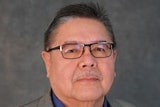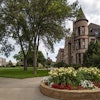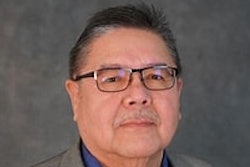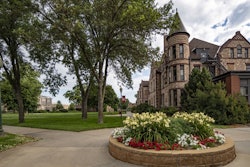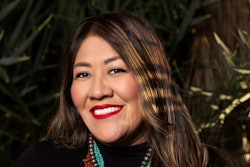With the 2008 Olympic Games taking place in Beijing this month, approximately 4 billion viewers worldwide will tune into the two week-long event. What happens during the games is certain to make news — records are broken, new champions are crowned. But this year, Olympic-related events made headlines even before the summer games began.
Demonstrations around the world disrupted the Olympic torch relay as the flame made its 85,000-mile journey from Greece to China, and activists lined the streets in several cities throughout the globe to protest China’s crackdown in Tibet.
The collision of sports and politics, scholars say, serve as teachable moments for their students. “The modern-day games are known as much for politics, civil rights, anti-apartheid, terrorism and boycotts as they are for seemingly superhuman sporting feats,” reports contributing editor Lydia Lum.
Dr. Peniel Joseph, an associate professor of African and Afro-American studies at Brandeis University, says the social and political undercurrents surrounding Olympic history can teach college students lessons that supplement what’s covered in a classroom. “The Olympics show the global nature of sport. They’ve been ahead of the times in terms of race,” he says. Read more in “When Sports and Politics Collide.”
Diverse correspondent Garry Boulard takes a look at the current status of jazz studies programs throughout the country in “Keeping a Tradition Alive.” Scholar musicians are trying to attract increasing numbers of Black students to such programs. But in the process, the jazz studies applicant pool is expanding to include international and nontraditional aged students.
“This tells me that for those who are afraid that jazz will someday die out, not to worry,” says Carl Allen, the artistic director of jazz studies at the Juilliard School. “It is a form of music that is in some ways more popular than ever, particularly among young people.” Other jazz scholars say school systems need to bring back band classes, particularly in urban areas, in efforts to keep students interested in other forms of music besides hip-hop.
“Hip-hop became popular because many students in urban areas like Kansas City didn’t have any instruments to play with,” says Bobby Watson, director of jazz studies at the University of Missouri-Kansas City’s Conservatory of Music and Dance. “And without an instrument, it’s hard to play jazz.” Last, but certainly not least, contributing editor Mary Annette Pember reports on the 40th anniversary of the tribal college movement as well as Diné College, the very first tribal college.
In “Staying True To Its Mission,” Mary Annette writes that the movement is still deeply rooted in American Indian spirituality and culture. And despite challenges, TCUs have grown over the years, establishing articulation agreements with mainstream universities and offering four-year degrees. Furthermore, the increasing number of American Indians in education has resulted in more research by and about American Indians.
“For too long we have allowed non-Indians from mainstream institutions to be seen as experts on Indian education and issues,” says Carrie Billy, president of the American Indian Higher Education Consortium, adding that throughout their history TCUs have never lost sight of their mission to sustain native culture, language and community.
© Copyright 2005 by DiverseEducation.com
